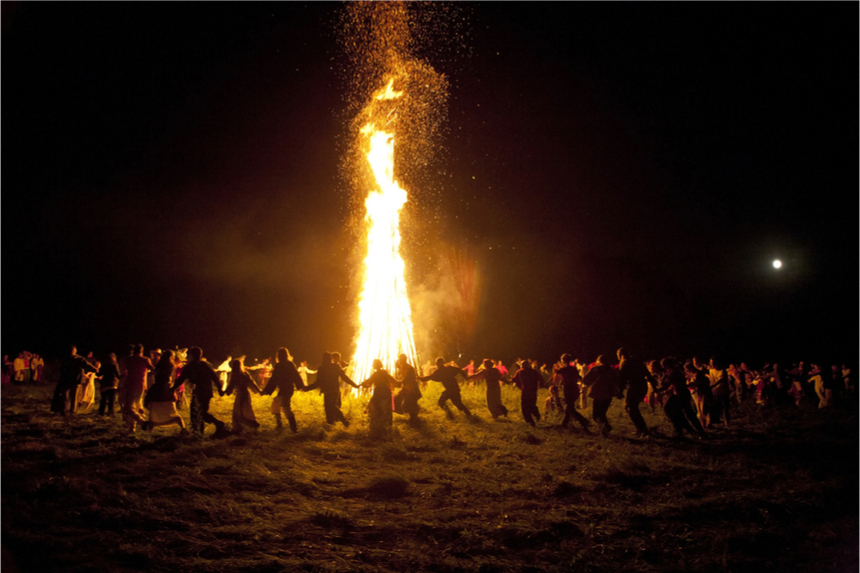Managing editor and logophile Andy Hollandbeck reveals the sometimes surprising roots of common English words and phrases. Remember: Etymology tells us where a word comes from, but not what it means today.
Many revelers see a midweek Halloween as an opportunity to dress up and party for two weekends — before and after the holiday — instead of just one. Such autumnal parties are prime targets for large, open-air fires — what we know as bonfires. But what exactly is so bon about bonfires?
Samuel Johnson, in his 1755 dictionary, wrote that the word bonfire came from a combination of the French bon “good” and the English fire. His ideas are reflected in other European languages, too; in German, for example, a bonfire is a Freudenfeuer, and in French it’s a feu de joie — both mean “joyous fire.”
But according to Merriam-Webster’s etymologists, Johnson is probably wrong about where the word came from, and their arguments are solid: First, the hybrid combination of French bon and the word fire, which comes straight out of Old English, would have been unusual at the time. Second, considering bonfire’s age, if the bon came from French, we would have expected it to evolve into boonfire instead.
But perhaps the most convincing argument is that the earliest attestation of bonfire in English writing was spelled banefire. Bane is a spelling of bone that persisted in Scotland for centuries. Most likely, then, the original bonfires trace their name back midsummer Celtic rituals in which animal bones were burned to ward off evil spirits.
They were bone fires.
So if you find yourself at a Halloween bonfire this weekend, tossing some leftover chicken bones into the fire not only would be historically accurate, but it could help ward off those creatures of the night at the time of year they are most likely to pay you an unwanted visit.
Become a Saturday Evening Post member and enjoy unlimited access. Subscribe now




Comments
This is another interesting origin-of-word lesson this week that people outside of California may find a lot less cringe worthy than I do with fires so prevalent in this state. I’m dreading seeing the latest out-of-control state fire here (with the wild winds) being THE leading national news story by Lester Holt and David Muir—-yet again, but am nearly certain it will fairly soon. Last December’s was one of the worst ever.
I’m not even sure where a Halloween bonfire would be allowed, or legal, but undoubtedly there are places or you wouldn’t have mentioned it in a current context in the first and last paragraphs. Wherever that is, let’s hope it stays contained and is properly extinguished when it’s “done”. REALLY extinguished!